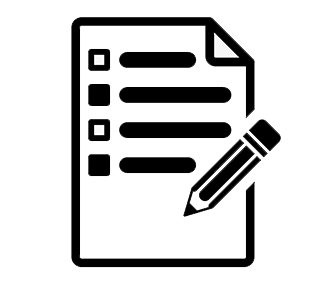Job Duties
1. Gather and monitor financial data (e.g. sales revenues and liabilities)
2. Prepare monthly, quarterly and annual statements (balance sheets and income statements)
3. Forecast costs and revenues
4. Manage tax payments
5. Organize internal audits
6. Prepare budgets (for the entire company and by department)
7. Monitor and report on accounting discrepancies
8. Conduct detailed risk analyses to assess potential investments
9. Analyze financial trends
10. Perform month-end and year-end close processes
11. Plans financial audits by understanding organization objectives, structure, policies, processes, internal controls, and external regulations; identifying risk areas; preparing audit scope and objectives; preparing audit programs.
12. Assesses compliance with financial regulations and controls by executing audit program steps; testing general ledger, account balances, balance sheets, income statements, and related financial statements; examining and analyzing records, reports, operating practices, and documentation.
13. Assesses risks and internal controls by identifying areas of non-compliance; evaluating manual and automated financial processes; identifying process weaknesses and inefficiencies and operational issues.
14. Verifies assets and liabilities by comparing and analyzing items and collateral to documentation.
15. Completes audit work papers and memoranda by documenting audit tests and findings.
16. Communicates audit progress and findings by providing information in status meetings; highlighting unresolved issues; reviewing working papers; preparing final audit reports.
17. Improves protection by recommending changes in management monitoring, assessment, and motivational practices, in the internal control structure, and in operating processes; identifying root causes.
18. Supports external auditors by coordinating information requirements.
19. Provides financial control information by collecting, analyzing, and summarizing data and trends.
20. Protects organization's reputation by keeping information confidential.
21. Updates job knowledge by participating in educational opportunities; reading professional publications; maintaining personal networks; participating in professional organizations.
22. Contributes to team results by welcoming new and different work requirements; exploring new opportunities to add value to the organization; helping others accomplish related job results as and where needed.
23. Examine and analyze journal and ledger entries, bank statements, inventories, expenditures, tax returns and other accounting and financial records, documents and systems of individuals, departments within organizations, businesses or other establishments to ensure financial recording accuracy and compliance with established accounting standards, procedures and internal controls
24. Prepare detailed reports on audit findings and make recommendations to improve individual or establishment's accounting and management practices
25. Conduct field audits of businesses to ensure compliance with provisions of the Income Tax Act, Canadian Business Corporations Act or other statutory requirements
26. May supervise other auditors or professionals in charge of accounting within client's establishment.
27. Accountants perform some or all of the following duties:
28. Plan, set up and administer accounting systems and prepare financial information for individuals, departments within organizations, businesses and other establishments
29. Examine accounting records and prepare financial statements and reports
30. Develop and maintain cost finding, reporting and internal control procedures
31. Examine financial accounts and records and prepare income tax returns from accounting records
32. Analyze financial statements and reports and provide financial, business and tax advice
33. May act as a trustee in bankruptcy proceedings
34. May supervise and train articling students, other accountants or administrative technicians.
Education Requirement
1. Chartered professional accountants, chartered accountants (CPA, CA) require a university degree and completion of a professional training program approved by a provincial Institute of Chartered Accountants and, depending on the province, either two years or 30 months of on-the-job training and membership in a provincial Institute of Chartered Accountants upon successful completion of the Uniform Evaluation (UFE).
2. Chartered professional accountants, certified general accountants (CPA, CGA) and chartered professional accountants, certified management accountants (CPA, CMA) require a university degree and completion of an approved training program and several years of on-the-job training and certification with a regulatory body is required in all provinces and territories.
3. Auditors require education, training and recognition as indicated for chartered professional accountants, chartered accountants (CPA, CA), chartered professional accountants, certified general accountants (CPA, CGA) or chartered professional accountants, certified management accountants (CPA, CMA) and some experience as an accountant.
4. Auditors may require recognition by the Institute of Internal Auditors.
5. To act as a trustee in bankruptcy proceedings, auditors and accountants must hold a licence as a trustee in bankruptcy.
6. Licensing by the provincial or territorial governing body is usually required for accountants and auditors practising public accounting.
![]() 4 to 10 years experience required
4 to 10 years experience required ![]() 78,250 CAD to 114,562 CAD P.A.
78,250 CAD to 114,562 CAD P.A. ![]() Canada
Canada




